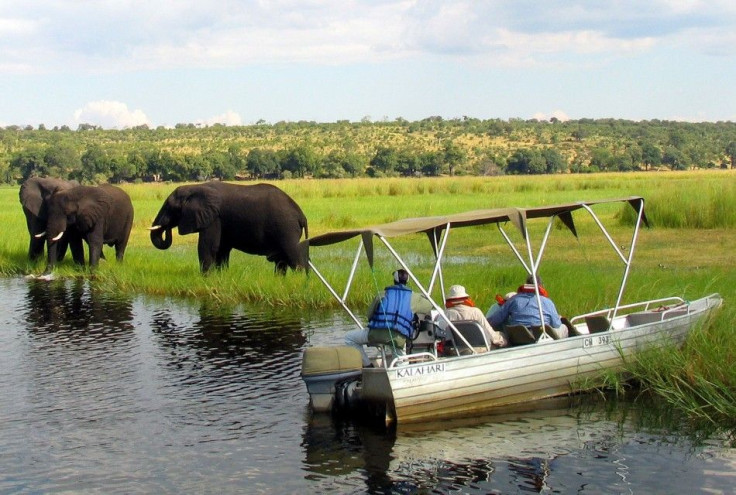Big-Game Hunters In Botswana Will Have To Shoot With Cameras, Not Guns

In 13 months, the southern African nation of Botswana will relinquish its title as the go-to destination for big-game hunters -- commercial hunting will be prohibited on Jan. 1, 2014.
“The shooting of wild game for sport and trophies is no longer compatible with our commitment to preserve local fauna,” said the environmental ministry in a Thursday statement.
The move is meant to combat a trend of species endangerment in the region. The global elephant population, for instance, has been declining for years. Botswana, a country of less than 225,000 square miles, is home to a full third of the world’s entire elephant population, according to the BBC.
Other big game call Botswana their home too; the country is rife with lions, giraffes, leopards and zebras.
Wealthy tourists aren’t the only ones who are keen to hunt these creatures. Many citizens of Botswana make a living by hunting big game, raising concerns that the upcoming ban might hurt native communities.
But the government says it will continue to grant licenses “for traditional hunting by some local communities within designated wildlife management areas,” even after the ban is in place.
Botswana is a middle-income country with a healthy multi-party democracy and a reputation for peace and stability. Diamonds, which are abundant there, are the country’s primary source of income; tourism and related service industries come in second.
The ban on big-game hunting could put a dent in tourism revenues for Botswana, but officials plan to lessen the impact by turning hunting grounds into photo-ops; visitors will now shoot wildlife with cameras instead of high-caliber guns.
© Copyright IBTimes 2024. All rights reserved.












